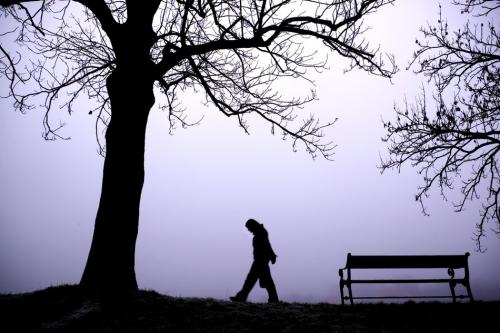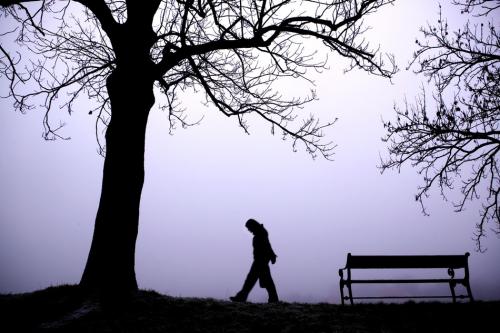When We Forget Things and Lose Stuff

"I wonder about my brain. I forget stuff and lose things. My memory is suddenly terrible. Am I just on grief overload?" Lisa asked.
Lisa's son Nick loved football. He was the starting quarterback in high school as a sophomore. Halfway through the season, he began having dizzy spells. One day in practice, he collapsed.
Nick never regained consciousness. A rare, undetected heart condition took his life. He was 16.
"I'll never see him graduate, fall in love, or get married," she said, staring at the trophies on Nick's desk. "We have two other teens, but the house feels empty. So does my brain. Some days I totally zone out. Yesterday, I honestly could not remember my own name."
We tend to forget things now
Grief takes up enormous space and energy. As a result, we simply have less brain available for everyday life. This is not a permanent condition. Forgetfulness is a temporary and common grief reaction.
With less mental space available, we forget things, appointments, and why we came into the room. And of course, we can never seem to find our keys.
We may experience memory gaps about the past as well. We can't recall what we did for Thanksgiving or what we had for breakfast. Other memories get garbled, as we mix two recollections together to create one that, well, never happened (at least not the way we remember it).
If we had memory issues before, chances are grief has exacerbated them. Even people with normally perfect recall can discover things slipping through the cracks created by loss.
Forgetfulness is common and natural during times of grief.
"It's amazing I remember anything. All I can think about is you."
An exercise to try:
Grief is tough. Some forgetfulness is common and natural. Here are some possible action steps that can help:
- Go easy on yourself. You have less brainpower available right now.
- Downgrade your expectations. It is not business or life as usual. Far from it. To expect yourself to keep the same schedule, perform at the same level, and do all you did before is unrealistic and unhealthy.
- Try making a simple list each morning (or each evening before bed). Put down 3 (and only 3) things that are your priorities for the day. Focus on these things. If you get other things done, that's bonus. And don't forget to put some self-care on your list (exercise, nutrition, rest, etc.). Taking care of yourself needs to be high on the priority list.
Forgetfulness is usually not a permanent condition. It's a common, natural, and temporary reaction to the loss of a loved one.
Adapted from the newly release bestseller, Shattered: Surviving the Loss of a Child. You can watch the Shattered videos here: Gary, Michelle
Article Images




Comments